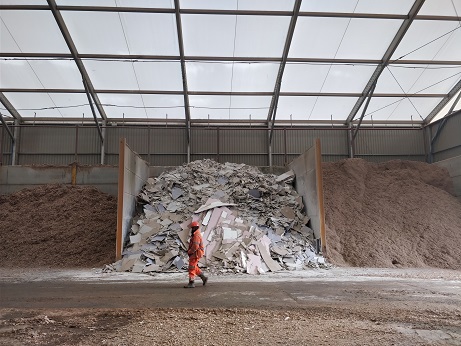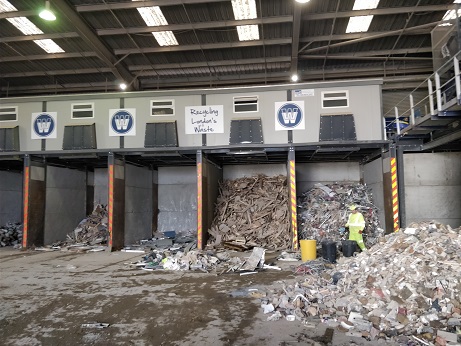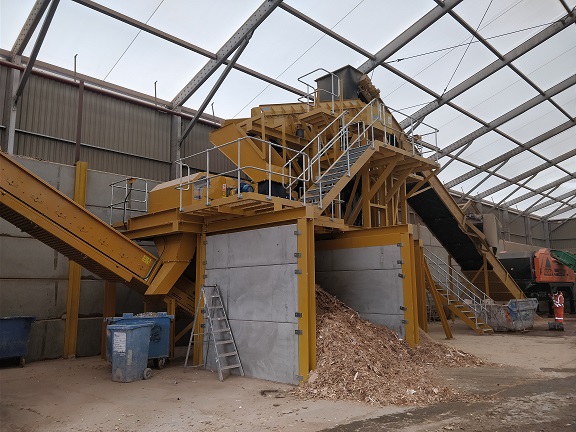Last year King’s produced over 1888 tonnes of construction waste. With projects happening all over the university, from small refurbishments to major redevelopments at Bush House and the Science Gallery, making sure that we properly dispose of any construction waste produced on our sites is important in helping to minimise our impact on the environment. So, what happens to our construction waste? Working with our main contractors we aim to make sure our waste is managed responsibly. One of the sites that construction waste from our sites ends up at is Westminster Waste’s depot near Greenwich. We visited the depot last month to see what happens.
In order to track the amount of waste produced, and so that we know where it ends up, drivers log ‘Waste Transfer Notes’ for every collection detailing what they take away and when. All the lorries are weighed as they arrive at the waste management plant, to make sure that we know exactly how much construction waste we are producing.
Once the construction waste has arrived at the site it is sorted and processed by Westminster Waste. First of all large items are sorted out, then it is fed through a trommel, which works like a giant sieve to sort timber into different sizes so that it can then be separated by its grading. The grade of the timber dictates how Westminster Waste process it. All of the grade B timber, which is the most common type used in construction, is sorted and then used for biomass fuel for renewable energy in the UK. Metals are re-melted directly into products worldwide. Similarly, all the plastics that are removed are either separated and reground into feedstock or reprocessed into new plastic products. After all this processing there is a small amount of residual waste left that cannot be recycled. This is shredded and proceed into high grade Solid Recovered Fuel which is then used for renewable power generation.
Whilst construction waste doesn’t count towards our 70% recycling target, since that only measures operational waste that students and staff can affect, it is important for us to know the waste generated by contractors on our sites is managed responsibly.
To read more about our commitments and objectives for responsible waste and resources management, see our Waste Management Policy.
For further guidance on recycling in King’s buildings, see our A-Z guide.




